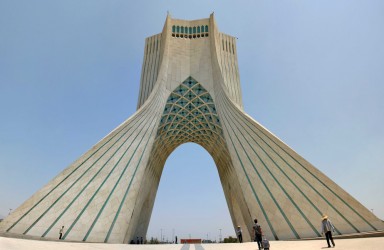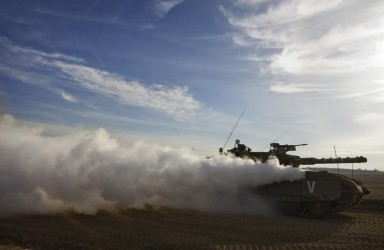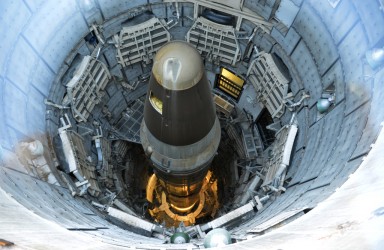The Permissive Promise
International law seeks to codify the international playing field. However, it is an essentially elastic & permissive system reflecting real-world power distributions.
Sanctioning Iran: What is the U.S. Trying to Accomplish?
The U.S. missed a chance to come to a peaceful resolution when Iran’s last reformist leader was in office. It needs to finish the job by working out a long term agreement
The Impact of Islamic Politics on the 2003 Iraq War
By sponsoring the mujahidin, the US and Pakistan empowered an ideology and movement that encouraged tensions within the Muslim political communities of the Persian Gulf.
Political Corruption and Insecurity in Southeast Asia
Political corruption in Southeast Asia is an important threat to political and economic security, as external influences on corruption create domestic insecurity.
A Human Security Approach to Addressing Piracy Off the Coast of Africa
A naval approach to Somali piracy is & will continue to be ineffective – it doesn’t address its root causes. Piracy will continue without a human security approach.
The Major Limits to Naval Cooperation in the Asia-Pacific Region
Due to crucial political, strategic, military and security difficulties, the Asia-Pacific region is experiencing less naval cooperation than the Western nations.
Pre-Emption and Israeli Decision-Making in 1967 and 1973
Israel felt vulnerable in 1967, but in 1973 Israeli leaders decided against pre-emption, due to overwhelming military self-confidence and new-found strategic depth.
Capitalism & Insecurity: How Promoting Western Values Fails to Create Peace
The spread of capitalism in globalisation does not spread nor create peace, but rather, creates the conditions in which conflicts, exploitation and insecurities arise.
Why is Controlling the Spread of Nuclear Weapons So Difficult?
Controlling the spread of nuclear weapons remains an impossibility, for as history has shown, more often than not those states which desire them will achieve them.
The Fracturing of the Syrian Resistance Coalition and the Tripolar Civil War
The transformation of the Syrian Civil War from a bipolar to a tripolar conflict came from incompatible visions of Syria’s future within the Syrian Resistance Coalition.









